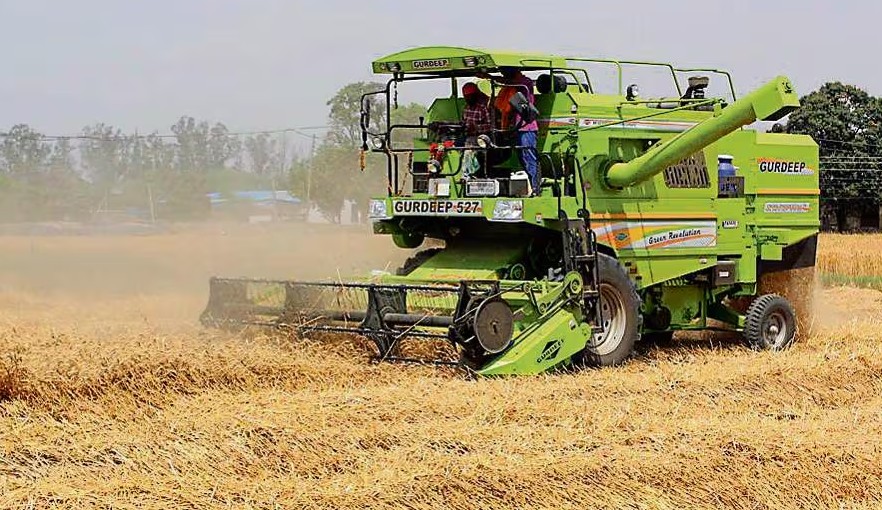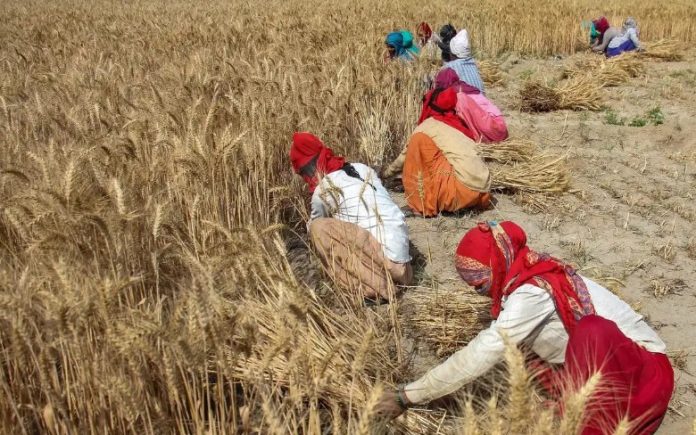In the heart of Punjab’s agricultural belt, preparations for the wheat procurement season are moving into full swing. As part of the state government’s efforts to ensure a smooth and hassle-free procurement experience for farmers, a team of senior officials from the Ropar district conducted a comprehensive review of the arrangements at the Morinda grain market. The visit was aimed at evaluating infrastructure readiness, logistics, and the coordination between procurement agencies to facilitate the upcoming procurement operations, which are vital not only to the farmers’ livelihoods but also to the food security framework of the region and the country.
The delegation, led by senior administrative figures including the Deputy Commissioner of Ropar, Sub-Divisional Magistrate (SDM), and officials from procurement agencies such as the Food Corporation of India (FCI), Punjab State Warehousing Corporation (PSWC), and Punjab Agro Industries Corporation, made their way through the Morinda grain market with a clear objective: to ensure that not a single grain remains uncollected and that farmers face no undue hardship during the procurement season.
During the visit, the Deputy Commissioner underscored the importance of meticulous planning in handling the large influx of wheat expected to arrive in the coming days. Morinda grain market is among the more prominent procurement centers in Ropar district, and last year alone, it witnessed the arrival of over 50,000 metric tonnes of wheat. With similar, if not greater, expectations this year due to favorable weather and high-yield crops, preparedness at every level has become critical.
The inspection included a detailed examination of weighing machines, moisture testing facilities, and tarpaulin covers used to protect the harvested crop from unseasonal rains. Storage arrangements and the availability of gunny bags were also assessed to ensure that once the wheat arrives at the mandi, it can be processed without delays. The Deputy Commissioner interacted with procurement agency representatives and mandi board officials to cross-check whether all essential logistics – such as transportation vehicles, labor availability, and digital payment infrastructure – were in place and functional.

A major focus of the visit was on ensuring transparency and fairness in procurement operations. In recent years, Punjab has embraced digital systems to reduce middlemen involvement and curb malpractices. The officials checked the eProcurement software and portals through which payments are made directly to farmers’ bank accounts. This digital transition has been instrumental in empowering farmers, and the Deputy Commissioner emphasized that the system must function smoothly so that payments are made within 48 to 72 hours of procurement, as mandated.
Apart from reviewing infrastructure, the team also held discussions with local arhtiyas (commission agents) and farmers present at the mandi. Farmers voiced concerns about labor shortages and delays in the issuance of tokens – the slips that schedule when a farmer can bring their crop to the market. In response, the SDM assured that the administration had already tied up with labor contractors to meet the expected demand, and that steps were being taken to streamline the token distribution process to avoid crowding and long wait times.
Another significant concern was the impact of weather. With sporadic rainfall reported in parts of Punjab, ensuring protection of the wheat lying in the open becomes critical. The procurement agencies were directed to use waterproof sheets and construct temporary sheds in parts of the mandi where permanent infrastructure is lacking. In addition, the Disaster Management Cell was asked to remain on alert in case any emergency evacuation of wheat stocks is needed due to a sudden change in weather.
On the matter of transportation, the Deputy Commissioner confirmed that contracts with local transporters had been finalized. Trucks and tractors would be deployed on a rotational basis to move the wheat from procurement centers to storage godowns and warehouses. This not only minimizes congestion at the procurement sites but also ensures that freshly procured wheat is stored quickly to avoid quality deterioration.
The review also extended to sanitation and basic amenities for the farmers who often wait for long hours in the mandis. The officials ensured that potable drinking water, restrooms, and shaded waiting areas were adequately arranged. Cleanliness in and around the procurement centers was emphasized to ensure a hygienic environment for both the workers and farmers. Local municipal bodies have been roped in to maintain cleanliness and dispose of the waste generated during the season.
To handle disputes or grievances that may arise during procurement, the Deputy Commissioner announced that a dedicated helpdesk will operate at the mandi throughout the procurement season. Farmers can approach the helpdesk for assistance related to quality checks, weighing discrepancies, payment delays, or any other logistical issue. Additionally, a grievance redressal number will be widely circulated among farmers, and officials will be on standby to respond promptly.
In conclusion, the officials noted that the Morinda grain market was well on track in terms of preparedness. However, they stressed the need for continuous monitoring and daily reviews once the procurement begins in earnest. Feedback mechanisms will be put in place to allow real-time reporting of issues by both farmers and officials. The Deputy Commissioner lauded the efforts of all agencies involved and reiterated the administration’s commitment to ensuring that the procurement season runs smoothly and efficiently.
The wheat procurement season holds immense significance for Punjab, a state that plays a pivotal role in India’s grain economy. It not only supports the livelihoods of countless farmers but also contributes to the nation’s food reserves. The state government has assured that it will leave no stone unturned to make this procurement season a success. As the golden wheat fields of Punjab prepare for harvest, the wheels of governance, logistics, and administration are moving in tandem to ensure that every grain finds its rightful place.


